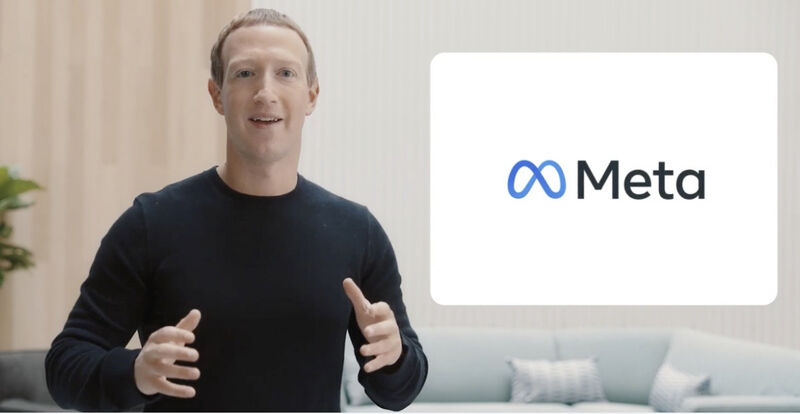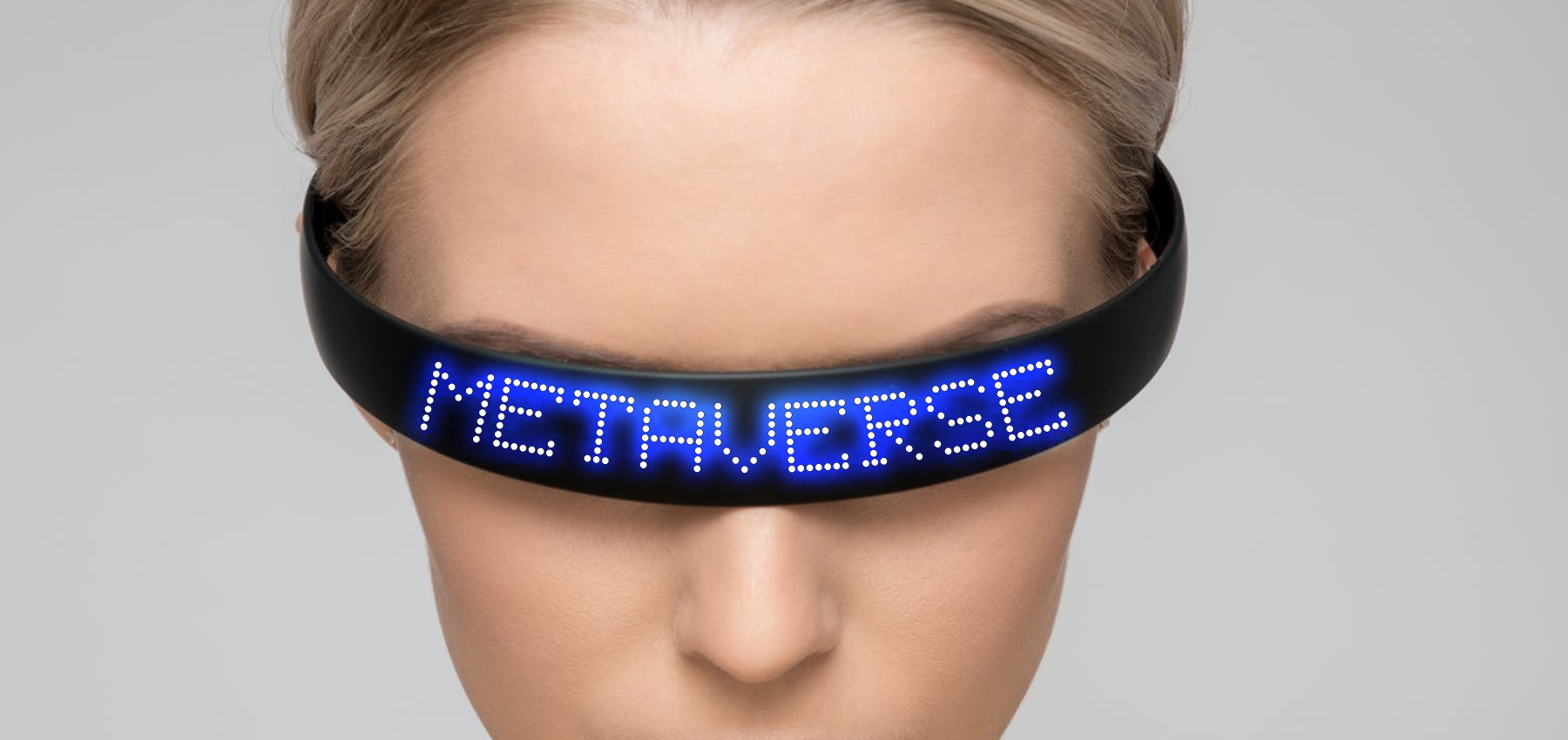Over the weekend I published a post in reaction to Facebook’s rebranding as Meta. It was one of my most-read posts and generated a surge of comments. Herein are a few responses to your emails.

2 November 2021 (Paris, France) – The reaction to Facebook’s rebranding as Meta last week which I addressed over the weekend was a general outpouring of “metaverse pessimism”. I think such chatter risks dismissing it too soon because the pessimists are strangely blind to the fact that the metaverse is already very much under construction. Lots to discuss but I’ll keep my comments brief.
First, there were some pretty funny responses. The Daily Show video reworked Mark’s original presentation video and puts meta Zuckerberg at the Charlottesville white supremacy rally. Pretty amusing:
Look, I get it. Part of the challenge is that Facebook’s enthusiastic championing of the metaverse concept, which it did not invent, immediately became a referendum on Facebook itself. If you think Facebook is too irresponsible to be trusted with the future, or if using Facebook makes you feel bad, a Facebook-centric metaverse is a nonstarter. It can feel as if the company is not transforming here so much as it is putting on a disguise. The vision of the future that Meta presented is largely borrowed from others; the descendant of dystopian fiction; and heavily dependent on technology that has yet to be invented.
That is the part of metaverse pessimism that I find relatively easy to understand. It’s the idea that if someone is going to build a three-dimensional embodied internet in which the majority of digital human activity transpires, Meta should not be the company that builds it. Or as Casey Newton put it:
If people had really wanted to see Facebook build the metaverse, the company might still be called Facebook today.
But the metaverse will not fail altogether. Many have told me “I have no interest in becoming part of a metaverse”. I get it.
The problem is that it’s boring. The futures it imagines have been imagined a thousand times before, and usually better. Two old men chat over a chessboard, one in Barcelona, one in New York, much as they did on Minitel in the 1980s. There’s virtual Ping-Pong and surfing, you know, like on a Wii. You can watch David Attenborough nature documentaries, like you do on Netflix. You can videoconference with your workmates … you know, like you do every single day.
And, yes, various components of Meta’s vision have already been built by others: persistent avatars in Roblox, social experiences in VRChat, digital goods in Fortnite, and so on. But where most critics are calling Meta’s vision “vaporware”, many tech pundits (me included) see Facebook as already losing the game. They just happen to be a little late in hopping on board.
So to sum up critics and pundits: Meta’s vision for the metaverse is ridiculous and terrible; but it’s also extremely boring; but also it’s vaporware; but also it has already been built by video game companies and Facebook is late to the game.
And having fawned over tech over the last decade or so … and now being burned … skepticism is the primary mode of tech journalism. When we see something new – particularly these days – we immediately begin gaming out how it could fail or be abused. This is as it should be; it’s now quite clear that many people were mostly asking the wrong questions about Facebook in the early 2010s.
Just two brief points:
THIS STUFF AIN’T EASY

A.R. is a really hard problem. If you step back to the beginning, you’ve gotta build the display that goes on your face that doesn’t make you look ridiculous. You have to find a way to power it; you have to put a battery on your body somewhere; you’ve gotta find a computer that’s fast enough to look at the world around you and put stuff on top that’s also small enough to run off the battery. Very challenging. But that’s just the tech problem.
Once you build it, who is going to augment reality? Who is in charge of that project? If I’m standing at the United States Capitol and you’re standing there, and we’re both looking at the Capitol, what are we seeing—what is the label on that building? Is it the “home of democracy,” or is it “where Donald Trump got screwed”? We’ll actually live in different realities.
Facebook is trying to pivot away from its Facebook problems, which is a content-moderation-at-scale problem. It’s unsolvable. Meanwhile, they are still racing toward the hardest content moderation at scale that will ever exist: that you and I will live in different realities because we’re wearing headsets on our faces that present to us different realities in the same moment, in the same physical space.
The big picture, though, is that these platforms are very busy just holding themselves together, but there’s all kinds of new ideas that, as we’ve seen, can collect capital very quickly, both cultural and actual capital. I think it’s the beginning of a reckoning with how being this connected affects us and affects our lives. But we simply do not have the social systems or the political hierarchies to deal with it. I think that has huge repercussions, especially in a country like the U.S. with a First Amendment that has a lot of analogue baggage. And the government surely DOES NOT HAVE the tools it might need to even begin to address all of this. Never mind the sclerotic U.S. political system.
So I think this is the beginning of that: How connected should we be, and who should be the gatekeepers of that connection? How do we hold those gatekeepers in line? No one knows the answer. It is the central challenge of our time. The literal reckoning with the shape of society that absolute connection has brought us, is upon us. And it is nowhere close to the end. The answers will take years to arrive.

And let’s be brutal. Zuckerberg’s metaverse is an ill-defined hodgepodge of virtual productivity tools and lame wearables. It’s in line with this broader feeling in Silicon Valley right now that if you jam together a conference call and a FitBit, somewhere in the middle there, you’ll end up with the metaverse.
Look, here’s the thing, the metaverse will probably happen at some point, in some fashion, but it won’t look like anything in Zuckerberg’s stupid Connect video. It will be weird and janky and people will use it to have sex with cartoon characters and hide video game achievements in parks and interact with their favorite influencers, who may or may not be real. The metaverse may have some VR flourishes, but more likely it will look like the way things look now — a mix of mobile internet technology, cameras, geodata, and streaming video. It will involve big events that simultaneously happen online and offline, which can be consumed live or as a data trail of clips and memes afterwards.
And there will, of course, be a lot of problems. There will be privacy issues. And geographic spaces will start to buckle under viral physical traffic – a world of pink Instagram walls, cronut lines, TikTok challenges, and GameStop pumps.
Big platforms will inevitably create products that will facilitate this, but they won’t be Facebook. They’ll be stranger and more specific. They’ll emphasize small localized networks and faster and more visual communication: A Discord-like messaging app that has a Snap Map functionality and seamless live video filters. Digital assets, whether they’re NFTs or just memes you save on your phone, will be displayed in jewelry or small picture frames. You’ll turn a corner on the street and see a group of people standing together, staring at their phones or watches, and you’ll have no idea what they’re seeing together. Maybe one of them airdrops you the piece of content they’re all looking at.
But just think about the internet right now and think about how far beyond Facebook is already. It is laughable to think Zuckerberg is capable of creating a brand new VR-based internet. He couldn’t even beat TikTok.
Facebook’s strategy over the last decade has been to rip off what smaller apps are doing or just buy them outright. But you can’t do that with the metaverse because it doesn’t exist yet. In fact, after Facebook lifted the Stories feature from Snapchat, Snap just pivoted into becoming an AR and wearables company, which means Facebook isn’t even an early adopter in that either.
Zuckerberg will still be working on his smart home screens, Habbo Hotel rip-off Zoom calls, and budget Apple Watches, while young people are busy actually building a new internet, haphazardly, out of protocols that are free, easy-to-use, and the most convenient – Bluetooth, WiFi, video calls, free messaging clients, open source maps, QR codes, and the blockchain. And we will interact with this new metaverse on devices that we already own for a while.
Then, slowly, new features will be added to help us interface with it better. Wireless bluetooth earbuds, smart watches, and phones will become more seamlessly integrated. They’ll have longer batteries, faster charging, brighter screens, better cameras, more wellness tools, and maybe eventually small projectors. We will create new user behaviors that companies will have to adapt to and then facilitate.
And there is no version of that where Facebook, or Meta, will be a key player. It is simply too big for them to dominate and, more importantly, it is already happening on Twitch, on Discord, and on TikTok. Zuckerberg is right. The metaverse is here, but it is has already left Facebook behind.
THE OTHER BIG PLAYER

Way back in 2016 I was invited to the Microsoft artificial intelligence lab in The Netherlands. There were several sessions on the technology behind AI assistants like Siri (Apple), Cortana (Microsoft), and Alexa (Amazon). Yeah, they all had crackerjack tech/software teams but what intrigued me was the Cortana writing team – a poet, a novelist, a playwright, and a former TV writer. I did some research and neither Apple nor Amazon had that kind of diversity (at the time; they’ve seen changed) on their AI assistant teams.
The Microsoft point was creative workers like poets, fiction writers, and comedians were the ones you needed responsible for making these AI assistants seem human, to provide a background story, to provide personality details. I loved the approach and I have stayed in constant touch with numerous folks at Microsoft.
Satya Nadella’s great triumph as CEO of Microsoft was breaking Windows hold over the company, freeing the company to not just emphasize Azure’s general purpose cloud offerings, but to also build a new OS centered on Teams that was Internet-centric, and device agnostic.
Indeed, that is why I don’t scoff at Nadella’s invocation of the enterprise metaverse; sure, Microsoft has the HoloLens, but that is just one way to access a work environment that exists somewhere beyond any one device or any one app. It is a hybrid approach.
Microsoft is selling to enterprises, with a motion not so dissimilar to that used to sell the rest of their products. Moreover, much of the technology underpinning HoloLens actually depends on Microsoft Azure. Both make sense both in terms of the maturity of the technology and also Microsoft’s existing value chains: enterprises are more likely to pay a lot — $3,500 for the HoloLens 2 — for specialized applications, and Microsoft is more likely to know how to sell to them.
That does not rule out consumer applications in the long run, even as it increases the chances that HoloLens will prove to be worth the investment by Microsoft.
THE BOTTOM LINE

I think Meta … at least the metaverse … has turned out to be surprisingly easy to underestimate here. The final product remains a long ways away, and will almost certainly look different than the blue-sky vision we all watched Thursday. But pessimists are strangely blind to the fact that the metaverse is already very much under construction.
* * * * * * * * * * * * * * * *

The Facebook attention gap
“The Facebook Papers” and whistleblower accounts were a public relations nightmare for Facebook, but so far, the company’s core stakeholders – advertisers, users and investors – seem unfazed. The big picture? For now, this controversy is mainly of interest to the media and lawmakers.
By the numbers: interest in Facebook – measured by social media interactions per published article about the company – has declined over the course of the year, according to data from NewsWhip.

The “Facebook Papers” haven’t produced very big spikes, even temporary ones, in interest about the company. The biggest jumps in engagement on stories about Facebook have come from stories about former President Trump. Google Trends data show a similar decline in Google searches for Facebook over the past year — and the biggest spike in Google searches in over a year happened when Facebook experienced an outage last month.
The Wall Street Journal’s most-engaged story from its Facebook investigations (Facebook Knows Instagram Is Toxic for Teen Girls, Company Documents Show) ranked 48th in social media interactions among the publication’s stories since March, according to NewsWhip data.
Between the lines: The company’s recent stock declines have mainly been attributed to Apple’s crackdown on targeted ads. The public relations drama seems to have played a more minor role.
What to watch: Social and civic groups have called for a nationwide advertising boycott beginning November 10th, but there hasn’t been major advertiser backlash in response to the whistleblower drama.